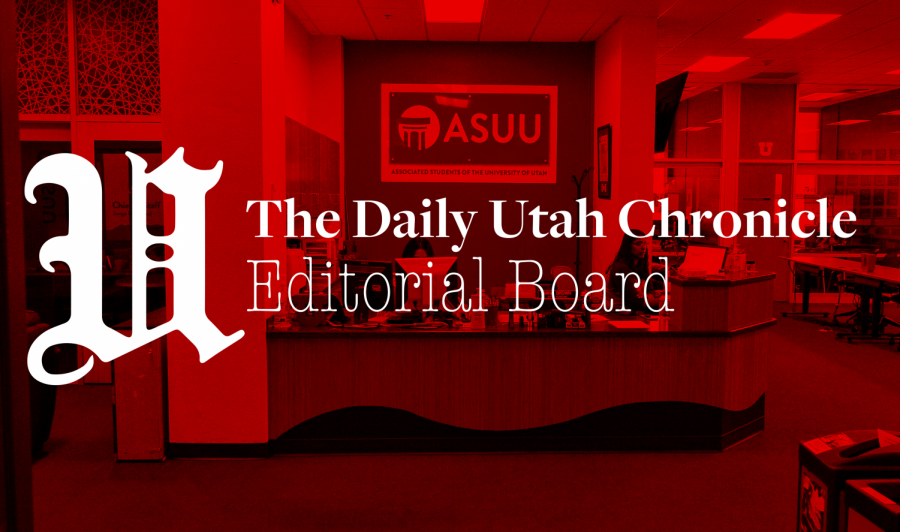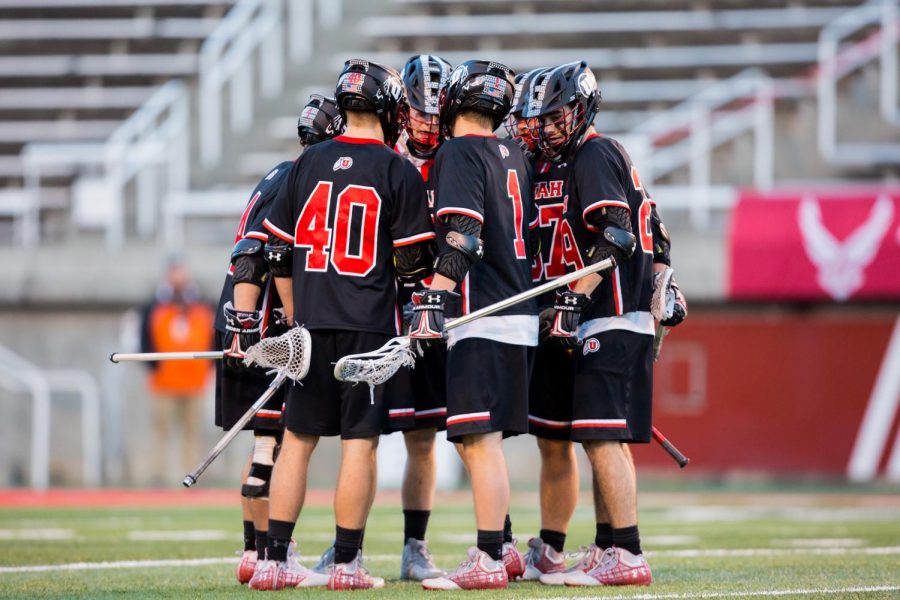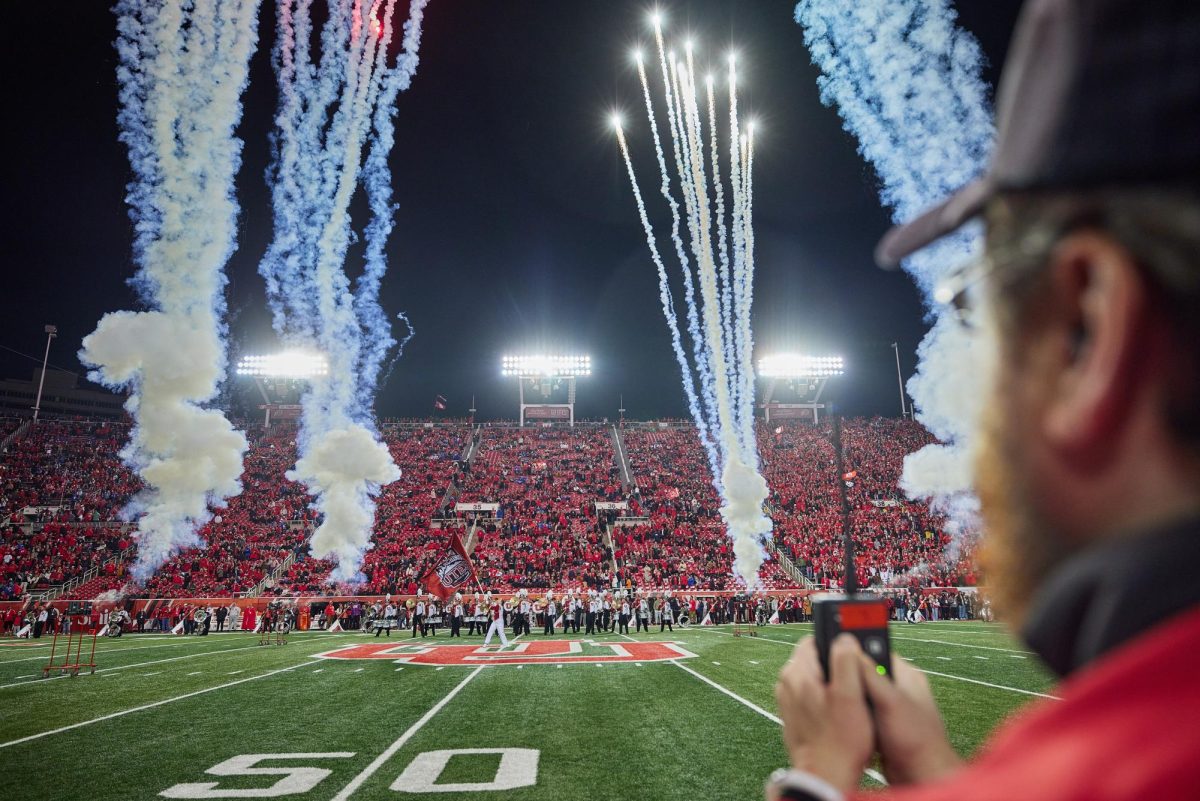Editorial: ASUU Isn’t Reaching Its Potential
February 15, 2021
When we first met as an editorial board to plan a piece on ASUU, the University of Utah’s student government, half of our team hardly knew anything about the organization, much less had any idea of its role on our campus. Neither did many of our friends and classmates when we mentioned working on this editorial — it’s clear that much of the U’s student body has little idea about what ASUU does or how it affects our education. And, truthfully, student government doesn’t seem to have any substantial power in or over university administration — but maybe it should. Its members are among the U’s best, brightest and most dedicated to our campus community. When our administrative leaders let us down, as many of us feel has happened repeatedly over the last few years, shouldn’t those elected student leaders have some authority to steer our school in the right direction? And if they don’t have that power, what is ASUU but a wasted opportunity?
Of course, our criticisms of student government as lacking influence — among the student body and in the boardroom — beg an important question: What power should ASUU have on our campus, and how can they get it?
For starters, ASUU needs to build a stronger relationship with the U’s 33,000 students. The problem isn’t that ASUU doesn’t do anything — it’s that communication between the organization and the rest of us is inconsistent, incomprehensive or ineffective. We need to know who they are and what they do for us. That means they should be involved in students’ university experience from the moment we set foot on campus. A mini-seminar at orientation on the structure and purpose of ASUU — and how to get involved in student leadership — would be a great start. An online information session ahead of the February elections could expand students’ understanding of why ASUU matters and give student government a stronger foothold as arbiters of our campus community and culture.
That said, simply developing a more robust student outreach strategy won’t be enough for ASUU to fulfill its primary purpose of giving students a voice via a governing body. If that’s truly the goal, the organization needs a few structural changes.
Right now, most of our student body leaders — including assembly representatives, senators, Supreme Court justices, a president and two VPs — exist in a bubble within the larger U community. The most visible collaboration between student leaders and university administration is through ASUU’s executive branch, since the student body president has voting power on committees like the Board of Trustees and the Academic Senate.
Student voices shouldn’t be limited to one representative seat on a small handful of committees, though. Even an elected president can’t fully or fairly represent the U’s entire student population, which consists of students from every state, race, linguistic background, socioeconomic status and major. ASUU could advocate for all students more effectively if we could directly elect student members (plural) to every committee that involves student affairs. That would include the Racist & Bias Incident Response Team, the Public Safety Advisory Committee and the Independent Review Committee that oversees the campus police department. The current student members of the IRC were appointed by President Ruth Watkins — but the U could democratize committees like this one by putting student committee candidates on our ASUU ballots along with presidential tickets.
Increasing the number of elected positions across campus would bring more students into student government, which would only allow for broader representation across the student body. A more equitable balance of power between ASUU and school administration — that is, more meaningful roles for student leaders — could increase voter turnout in our annual elections. Just as importantly, expanding direct student representation and power across campus could help rebuild students’ trust in university leaders after years of deteriorating confidence.
We’ve had some brilliant, compassionate leaders in ASUU this school year — students who are committed to “safety, connectivity and affordability” of campus resources. But their power is unfortunately limited. As U students vote in the ASUU primary this week, both candidates and administrative leaders should take time to consider their goals for our campus. If they want to make the U a school where students can be confident in our powers of self-determination, as well as our safety and the quality of our education, they have some changes to make in 2021.
The Daily Utah Chronicle Editorial Board is a group of senior opinion journalists who rely on research and debate to write staff editorials. Editorials represent the majority view of the editorial board and are written separately from the newsroom.












Anonymous • Feb 19, 2021 at 12:46 pm
Disappointed that this was not well researched before posting. Like the US government, ASUU is comprised of three different branches: executive, legislative, and judicial. The most well known is executive, because of the Student Body President. However, their reach only goes so far. The legislative branch holds elected senators for every college at the University and are all on Academic Senate. If you or any other student would like to make a change such as those you are suggesting, you are more than welcome to bring it up to your elected student Senator and they would be able to introduce that in Academic Senate. To the author of this piece, please talk to an elected student senator about their roles of representing before you post an article with incorrect information.
Anonymous • Feb 16, 2021 at 11:28 am
It’s unfortunate that you haven’t done your homework here. Every single elected senator, representing every single college, is a voting and participating member of the Academic Senate. There are student representatives on over 60 committees across the campus. I’m really tired of watching a select few students take every possible opportunity to take shots at President Watkins when you’ve never written about or focused on the vast positive areas of progress she’s accomplished for us as students. We’re looking for a new president now. Every time you take aim at her, the odds of us getting another unhelpful unsupportive old white man get higher.